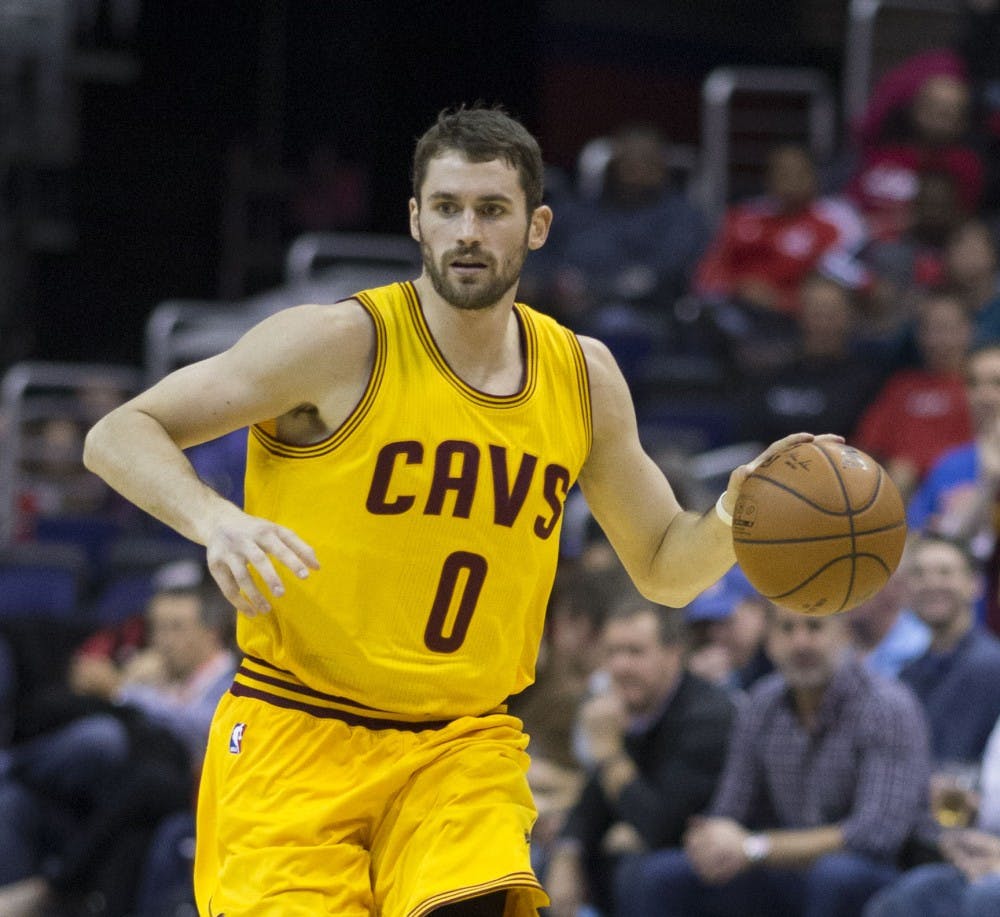On Nov. 5, Cleveland Cavaliers forward Kevin Love suffered an unusual illness during a game against the Atlanta Hawks. During a timeout, Love rushed to the locker room seemingly out of nowhere and did not return.
In an article for The Players’ Tribune, Love described his mental state at the time.
“I was running from room to room, like I was looking for something I couldn’t find. Really I was just hoping my heart would stop racing. It was like my body was trying to say to me, ‘You’re about to die,’” Love wrote. “I ended up on the floor in the training room, lying on my back, trying to get enough air to breathe.”
What happened turned out to be a panic attack. Love was taken to a clinic by the Cavaliers’ medical staff and, soon after, began seeing a professional for therapy.
A few months later, Toronto Raptors superstar DeMar DeRozan opened up about his struggle with depression in a tweet that read, “This depression get the best of me...” His tweet, along with Kevin Love’s article, kickstarted a national discussion on the prevalence of mental health issues affecting athletes.
In popular culture, athletes are typically stereotyped as strong, powerful and confident, a perception which makes it more difficult for them to seek help. However, it is extremely important to note that this image of strength, power and confidence does not prevent mental health issues like depression and anxiety from taking hold. Love spoke about that stigma in his article.
“I remember when I was two or three years into the league, a friend asked me why NBA players didn’t see therapists. I scoffed at the idea. ‘No way any of us is gonna talk to someone,’” Love wrote.
This stigma is particularly potent in men, particularly those who subscribe to the conventional portrayal of an “ideal man.” Many view seeking help for serious mental health issues as a display of weakness.
This cannot be further from the truth. Continuing to let mental illness impact your life without addressing it is a mistake in the long term, even if it may seem like the easy choice.
Seeking professional help for those issues is difficult, but ultimately it is the choice that makes you stronger.
A 2014 study by Dr. Neelima B. Chauhan of the University of Illinois linked the repetitive brain injury often caused by concussions in sports like football to depression, anxiety and suicide. It hurts to say, but as of 2018, 37 former NFL players have taken their own lives, including notable names like offensive lineman Terry Long and linebacker Junior Seau.
These individuals suffered tremendously and unfortunately were not able to get the help they needed in time. Seau’s brain was studied by the National Institute of Health and revealed symptoms of Chronic Traumatic Encephalopathy (CTE).
Unfortunately, widespread mental health issues have also impacted the Hopkins student population. According to a report released by the Task Force on Student Mental Health and Well-being in February of this year, roughly 20 percent of Hopkins students receive professional treatment for depression or anxiety.
Nearly 30 percent of undergraduates, 25 percent of professional students and 15 percent of graduate students have considered suicide. These statistics are tremendously higher than the averages for Americans aged 18-24, signaling a dire need for action.
“We found a lack of JHU staff dedicated specifically to health education and wellness,” the Task Force report read.
The Center for Health Education and Wellness at Hopkins (CHEW) currently has only three full-time staff members, and the University Health Services Wellness Center has just one full-time staff member.
If resources and campus culture do not change tremendously, our students will continue to suffer in silence, and students’ struggles with mental health will continue to increase.
This article may seem dark, but there is good news. These issues are finally coming to light in a way that can be seen by those who need it most.
We should say thank you to Mr. Love, Mr. DeRozan and many others for sharing their stories with us so that we may reach out to those in danger and help them learn how to address these mental health issues in the best way possible.
With the right resources and the right change in campus culture, students and athletes all over the world can begin to address their mental health the right way.





